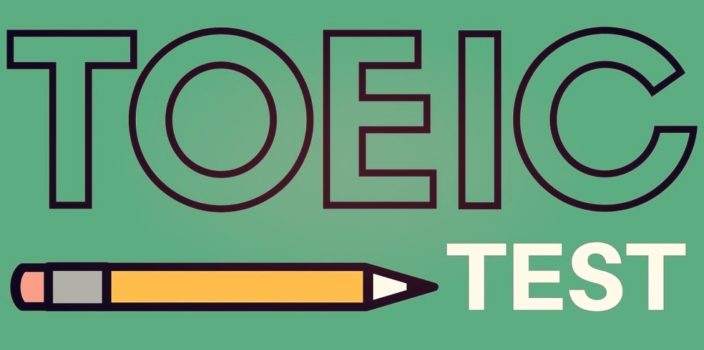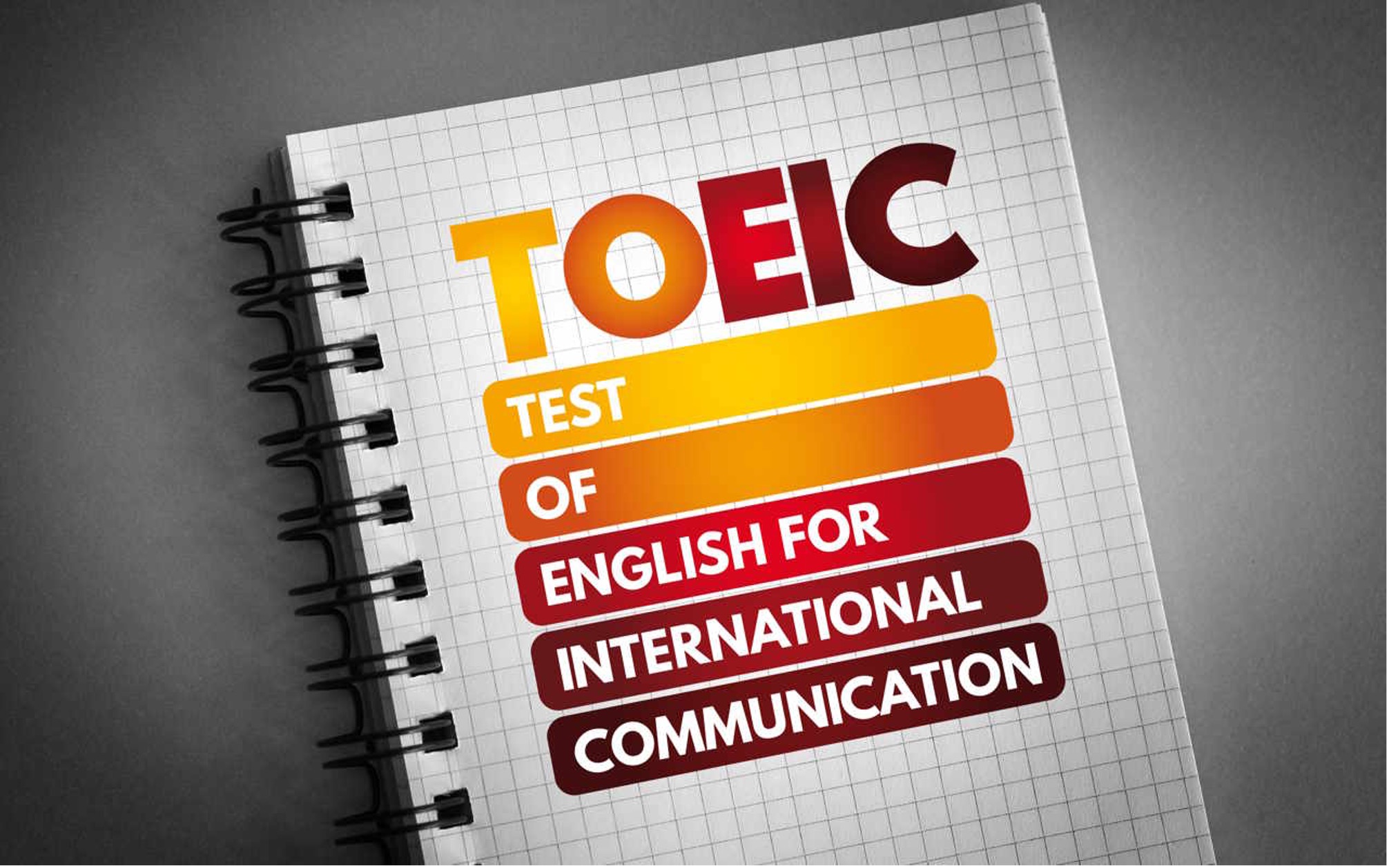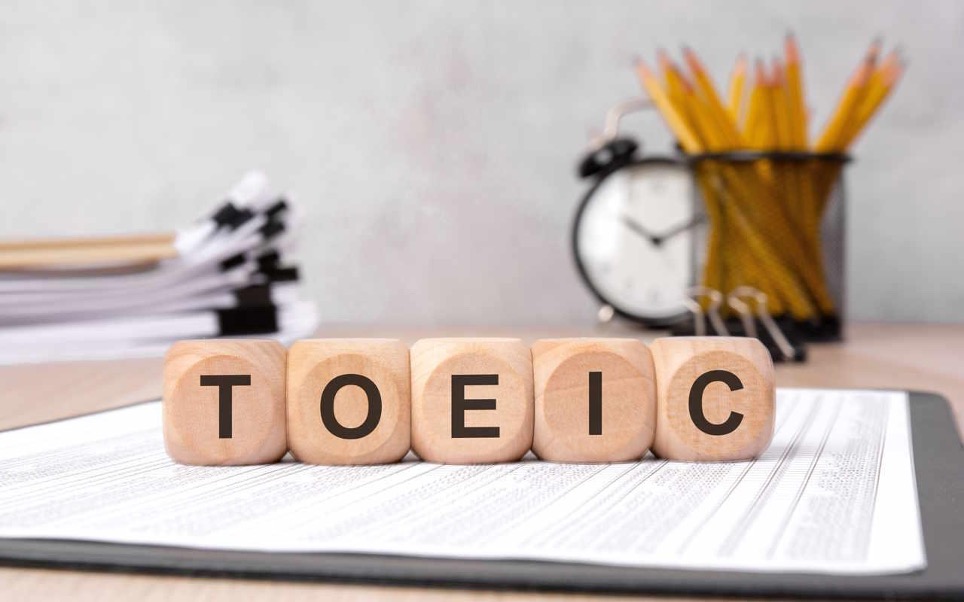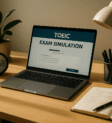
Spanish TOEIC Preparation Tourism Hospitality Sectors – Complete 2025 Guide
#SpanishTourism #TOEIC2025 #Hospitality #TourismCareers #HotelIndustry #EnglishProficiency #SpainTourism
Spanish Tourism Industry English Requirements
Spain’s tourism industry represents the economic backbone of the nation, contributing over 147 billion euros annually and employing more than 2.8 million people directly. As the world’s second-most visited country, Spain’s hospitality sector demands exceptional English proficiency to serve international guests effectively and maintain competitive advantage in global markets.
The Test of English for International Communication (TOEIC) has become the preferred assessment standard for Spanish tourism and hospitality companies. Unlike academic English tests, TOEIC evaluates practical communication skills essential for guest services, international operations, and cross-cultural hospitality management.
Industry Reality: Over 88% of Spanish tourism companies now require TOEIC scores for customer-facing positions, with minimum requirements ranging from 550 to 800 points depending on role responsibility and international guest exposure levels.
Start Your Tourism TOEIC Journey
International Guest Expectations and Market Demands
Spain welcomes over 85 million international visitors annually, with English-speaking tourists representing 45% of total arrivals. British, American, Canadian, and Australian tourists consistently rank among the highest-spending demographics, making English proficiency directly correlated with revenue generation and career advancement opportunities.

The modern tourism landscape demands multilingual professionals who can navigate complex guest requests, manage international partnerships, and coordinate with global distribution systems. Spanish hospitality companies increasingly prioritize English-proficient staff for promotion opportunities and international expansion projects.
Understanding the comprehensive TOEIC test structure is essential for tourism professionals seeking career advancement in Spain’s competitive hospitality market.
Digital Tourism Transformation Impact
Spain’s tourism industry digitalization has accelerated English proficiency requirements. Online guest interactions, international booking platforms, and social media management demand sophisticated English communication skills beyond traditional face-to-face hospitality service.
- Online Reviews Management: Responding to international guest feedback on TripAdvisor, Google, and Booking.com platforms
- Social Media Engagement: Creating and managing English content for international marketing campaigns
- Digital Guest Services: Providing real-time assistance through chatbots, messaging apps, and virtual concierge services
- Revenue Management: Analyzing international market data and coordinating with global distribution partners
Major Spanish Hospitality Companies TOEIC Requirements
Spain’s leading hospitality companies have established comprehensive TOEIC requirements aligned with their international expansion strategies and guest service standards. These requirements reflect the competitive nature of global tourism markets and career advancement opportunities.
International Hotel Chains and Resorts
| Hotel Company | Minimum TOEIC Score | Target Positions |
|---|---|---|
| Meliá Hotels International | 650-750 | Front Office, Guest Relations, Management |
| NH Hotel Group | 600-720 | Reception, Concierge, Food & Beverage |
| Barceló Hotel Group | 580-680 | Customer Service, Sales, Operations |
Luxury Resorts and Boutique Hotels
| Resort Category | TOEIC Requirement | Special Focus Areas |
|---|---|---|
| 5-Star Luxury Resorts | 720-800 | Personalized guest services, VIP handling |
| Boutique Hotels | 650-750 | Cultural experience communication |
| Beach Resorts | 600-700 | Activity coordination, safety communication |
Seasonal Variation: Many Spanish tourism companies adjust TOEIC requirements seasonally, with higher standards during peak international tourist seasons (June-September and December-January).
Tourism Services and Experience Companies
| Service Category | TOEIC Score Range | Communication Requirements |
|---|---|---|
| Tour Operators | 650-780 | Cultural interpretation, group management |
| Travel Agencies | 600-720 | Itinerary planning, booking coordination |
| Event Management | 680-750 | International client coordination |
For comprehensive score requirements and career planning, explore our detailed TOEIC required score guide tailored for hospitality professionals.
TOEIC Score Requirements by Tourism Position
Different positions within Spain’s tourism and hospitality sector require varying English proficiency levels based on guest interaction frequency, international responsibilities, and communication complexity. Understanding these requirements helps target appropriate TOEIC preparation strategies.
Front-of-House Positions
Guest-facing roles form the foundation of Spanish hospitality excellence, requiring strong communication skills for diverse international clientele with varying English proficiency levels and cultural expectations.
- Hotel Reception Manager (700-780 TOEIC): Lead front desk operations, handle complex guest requests, manage international reservations, and coordinate with global booking platforms
- Guest Relations Coordinator (650-750 TOEIC): Provide personalized guest services, resolve complaints diplomatically, arrange special experiences, and maintain guest satisfaction standards
- Concierge Services (680-760 TOEIC): Offer local expertise, coordinate external services, make restaurant reservations, and provide cultural guidance to international guests
- Front Desk Agent (550-650 TOEIC): Handle check-in/check-out procedures, answer guest inquiries, process payments, and provide basic information services

Food and Beverage Operations
Culinary tourism represents a major attraction for international visitors to Spain, requiring specialized English vocabulary for menu explanations, dietary accommodations, and cultural food experiences.
- Restaurant Manager (720-800 TOEIC): Oversee international dining experiences, manage staff training, coordinate with suppliers, and ensure guest satisfaction standards
- Sommelier/Wine Specialist (680-750 TOEIC): Explain Spanish wine varieties, conduct tastings, recommend pairings, and share cultural wine knowledge with international guests
- Head Waiter/Waitress (600-700 TOEIC): Describe menu items, accommodate dietary restrictions, explain cooking methods, and provide attentive table service
- Bartender (550-650 TOEIC): Prepare cocktails, engage in casual conversation, explain drink ingredients, and create welcoming atmosphere for international guests
Management and Administration
Leadership positions in Spanish tourism require comprehensive business English skills for strategic planning, international partnerships, and cross-cultural team management.
- General Manager (780-850 TOEIC): Lead international operations, develop strategic partnerships, represent company at global events, and manage multicultural teams
- Sales and Marketing Director (750-820 TOEIC): Create international marketing campaigns, negotiate with global partners, analyze market trends, and develop business strategies
- Human Resources Manager (700-780 TOEIC): Recruit international staff, conduct training programs, manage employee relations, and ensure compliance with labor regulations
- Revenue Manager (720-800 TOEIC): Analyze international market data, optimize pricing strategies, coordinate with booking platforms, and forecast demand patterns
Career Growth Insight: Tourism professionals with TOEIC scores above 750 show 85% higher promotion rates and 60% greater salary growth compared to those with lower English proficiency levels.
Develop targeted preparation strategies using our comprehensive listening improvement guide designed for hospitality professionals.
Spanish Tourism Regions and Language Demands
Spain’s diverse tourism regions present varying English proficiency requirements based on international visitor demographics, tourism types, and local market characteristics. Understanding regional demands helps professionals target appropriate preparation strategies for specific career locations.
Balearic and Canary Islands – International Resort Destinations
Spain’s island destinations attract the highest concentrations of English-speaking tourists, creating premium opportunities for hospitality professionals with strong TOEIC scores.

- Ibiza and Mallorca: Luxury tourism and entertainment sectors require 700+ TOEIC scores for management positions, with emphasis on VIP guest services and international event coordination
- Tenerife and Gran Canaria: Year-round resort operations demand 650+ TOEIC scores, focusing on activity coordination, guest safety communication, and cultural experience guidance
- Lanzarote and Fuerteventura: Eco-tourism and adventure travel sectors emphasize 600+ TOEIC scores with specialized vocabulary for outdoor activities and environmental education
Costa del Sol and Mediterranean Coast
Spain’s Mediterranean coastline serves diverse international markets, from budget travelers to luxury resort guests, requiring adaptable English communication skills across various tourism segments.
- Málaga and Marbella: Luxury hospitality market requires 720+ TOEIC scores for premium guest services, golf tourism, and high-end retail coordination
- Valencia and Alicante: Cultural and business tourism sectors need 650+ TOEIC scores, focusing on conference coordination, cultural interpretation, and business guest services
- Barcelona and Costa Brava: Urban tourism and cultural experiences require 680+ TOEIC scores, emphasizing art history communication, architectural tours, and cosmopolitan guest services
Madrid and Cultural Tourism Centers
Spain’s cultural and historical destinations demand sophisticated English skills for educational tourism, museum services, and cultural interpretation programs.
Cultural Tourism Insight: Madrid’s tourism sector shows 40% higher TOEIC requirements compared to beach destinations due to complex cultural content delivery and sophisticated international visitor expectations.
- Madrid Central: Museum services, cultural tours, and business tourism require 700+ TOEIC scores with emphasis on historical knowledge communication and professional conference services
- Seville and Córdoba: Heritage tourism and flamenco cultural experiences need 650+ TOEIC scores, focusing on cultural storytelling and authentic experience interpretation
- Santiago de Compostela: Religious and pilgrimage tourism requires 600+ TOEIC scores with specialized vocabulary for spiritual guidance and historical context explanation
For comprehensive preparation timelines adapted to regional requirements, explore our TOEIC test duration and scheduling guide.
Tourism-Focused TOEIC Preparation Strategies
Effective TOEIC preparation for Spanish tourism professionals requires specialized strategies addressing guest service scenarios, cultural communication, and hospitality industry terminology. Our proven methodologies optimize both test performance and practical workplace communication skills.
Guest Service Communication Excellence

- Guest Interaction Scenarios: Practice handling complaints, special requests, emergency situations, and cultural misunderstandings with international guests
- Telephone Communication: Develop skills for reservation management, information inquiries, and problem resolution through phone conversations
- Written Correspondence: Master email communication, booking confirmations, itinerary planning, and follow-up guest services
- Cultural Sensitivity Training: Learn appropriate communication styles for different English-speaking cultures and business customs
Hospitality Business Communication

- Revenue Management Communication: Practice discussing pricing strategies, occupancy rates, market analysis, and financial performance indicators
- Supplier Coordination: Develop language for vendor negotiations, service agreements, quality standards, and partnership management
- Team Leadership Skills: Learn to conduct meetings, provide feedback, coordinate schedules, and manage multicultural hospitality teams
- Marketing and Promotion: Master vocabulary for social media content, promotional materials, event planning, and brand communication
Tourism Industry Listening Challenges
Spanish tourism professionals face unique listening challenges including diverse English accents, rapid guest inquiries, background noise environments, and emotional guest communications requiring empathy and understanding.
Listening Strategy: Focus on tourism podcasts, international hotel training videos, and guest service simulation exercises to develop familiarity with hospitality-specific pronunciation patterns and communication scenarios.
Our interactive TOEIC games include tourism-specific scenarios for realistic practice in guest service environments.
Reading Comprehension for Hospitality Professionals
Tourism professionals must process diverse written materials including guest correspondence, industry regulations, supplier contracts, and marketing materials efficiently while maintaining accuracy and professional standards.
- Guest Communication Analysis: Practice reading and responding to guest emails, review comments, special requests, and complaint letters with appropriate tone and solutions
- Industry Documentation: Master tourism regulations, safety standards, health protocols, and legal requirements across different markets and jurisdictions
- Marketing Material Comprehension: Analyze promotional content, competitor analysis, market research reports, and tourism trend publications for strategic insights
- Operational Procedures: Understand standard operating procedures, emergency protocols, staff training materials, and quality assurance documentation
Avoid common preparation mistakes by following our comprehensive guide on top TOEIC practice mistakes and solutions.
Essential Tourism and Hospitality Vocabulary
Success in Spanish tourism and hospitality requires mastery of specialized vocabulary spanning guest services, operations management, cultural experiences, and business development. This vocabulary foundation enables effective communication across all hospitality contexts.
Guest Services and Front-of-House Operations
Accommodation Services: Check-in procedures, room assignments, amenities overview, housekeeping services, maintenance requests, upgrade availability, late checkout, early arrival, special accommodations, accessibility features
Guest Relations: Complaint resolution, service recovery, guest satisfaction, feedback collection, loyalty programs, VIP treatment, personalized service, concierge assistance, local recommendations, cultural guidance
Reservation Management: Booking confirmation, availability inquiry, rate quotation, cancellation policy, group reservations, payment processing, deposit requirements, modification requests, no-show procedures
Food and Beverage Service Excellence
Spain’s culinary tourism demands sophisticated vocabulary for menu descriptions, dietary accommodations, wine service, and cultural food experiences that showcase regional specialties and international cuisine.
- Menu Descriptions: Ingredient explanations, cooking methods, regional specialties, seasonal offerings, chef recommendations, wine pairings, portion sizes, preparation time, dietary information
- Dietary Accommodations: Allergic reactions, vegetarian options, vegan alternatives, gluten-free choices, kosher requirements, halal options, low-sodium preparations, sugar-free alternatives
- Spanish Cuisine Culture: Tapas traditions, paella varieties, jamón ibérico quality, regional wine characteristics, olive oil types, cheese selections, seafood freshness, traditional recipes
- Service Standards: Table setting, service timing, course explanations, beverage service, special occasion arrangements, group dining coordination, buffet management, à la carte service
Tourism Activities and Experience Management
Modern tourism emphasizes authentic experiences and cultural immersion, requiring vocabulary that connects international guests with Spanish heritage, natural beauty, and contemporary culture.
- Cultural Experiences: Museum tours, historical narratives, architectural styles, artistic movements, flamenco performances, traditional festivals, religious significance, local customs
- Outdoor Activities: Beach safety, water sports, hiking trails, cycling routes, wildlife observation, photography opportunities, weather conditions, equipment rental, safety precautions
- Urban Tourism: Public transportation, shopping districts, entertainment venues, nightlife options, cultural events, business facilities, conference services, exhibition centers
- Adventure Tourism: Risk assessment, safety equipment, skill requirements, physical fitness, emergency procedures, environmental impact, group dynamics, insurance coverage
Business Operations and Management
Leadership roles in Spanish tourism require comprehensive business vocabulary for strategic planning, financial management, marketing coordination, and international partnership development.
- Revenue Management: Occupancy rates, average daily rate, revenue per available room, market segmentation, competitive pricing, demand forecasting, seasonal adjustments, yield optimization
- Marketing Strategy: Brand positioning, target demographics, digital marketing, social media engagement, content creation, influencer partnerships, online reputation management, customer acquisition
- Quality Assurance: Service standards, performance metrics, guest satisfaction surveys, mystery shopping, staff training, continuous improvement, certification programs, industry benchmarks
- Sustainability Practices: Environmental responsibility, waste reduction, energy efficiency, local sourcing, community engagement, cultural preservation, sustainable tourism, carbon footprint
Enhance your tourism vocabulary through our specialized TOEIC score tracking and analysis tools.
Pros and Cons of TOEIC for Tourism Careers
While TOEIC provides valuable assessment for Spanish tourism professionals, understanding both advantages and limitations helps make informed decisions about test preparation investment and career development strategies.
Advantages for Tourism Professionals
- Industry-Wide Recognition: TOEIC scores are universally accepted across Spanish tourism companies, from budget hostels to luxury resort chains
- Guest Service Relevance: Test content directly relates to real hospitality scenarios including reservations, complaints, and service coordination
- Career Mobility: High TOEIC scores enable transfers between different tourism sectors and geographic regions within Spain
- Seasonal Employment Advantage: Strong English skills command premium wages during peak tourist seasons and secure year-round positions
- International Opportunities: TOEIC scores facilitate employment with international hotel chains and tour operators expanding globally
- Guest Satisfaction Impact: Better English communication directly correlates with higher guest satisfaction scores and repeat business
- Tip Income Enhancement: English-speaking staff typically earn 30-50% higher gratuities from international guests
Potential Limitations
- Cultural Context Gaps: Standard TOEIC doesn’t assess Spanish cultural knowledge essential for authentic tourism experiences
- Oral Communication Absence: Traditional TOEIC doesn’t evaluate speaking skills crucial for guest interactions and telephone services
- Seasonal Stress Factors: High-pressure tourism environments may not reflect controlled testing conditions accurately
- Emotional Intelligence Limitations: Test doesn’t measure empathy and emotional skills essential for guest service excellence
- Regional Variation Challenges: Different Spanish tourism regions may value other qualifications alongside or above TOEIC scores
- Preparation Time Constraints: Tourism industry work schedules often conflict with structured study time requirements
Professional Recommendation: Combine TOEIC preparation with practical guest service experience, Spanish culture education, and specialized hospitality training for comprehensive career development in tourism industry.
Seasonal Preparation Timeline for Tourism Professionals
Spanish tourism professionals must align TOEIC preparation with industry seasonal demands, peak hiring periods, and personal work commitments. This strategic timeline optimizes preparation efficiency while accommodating the demanding nature of hospitality careers.
Phase 1: Off-Season Foundation Building (October-January)
Utilize slower tourism periods for intensive TOEIC preparation. Complete diagnostic testing to establish baseline scores and identify specific weaknesses. Focus on fundamental English skills while tourism demands are reduced. Create sustainable study routines that accommodate seasonal work variations and personal commitments.
Phase 2: Pre-Season Skill Development (February-April)
Intensify guest service vocabulary and communication practice as tourism season approaches. Practice listening exercises with diverse English accents representing major tourist demographics. Develop reading comprehension skills using tourism industry publications and guest service materials. Complete weekly practice tests to monitor progress and adjust strategies.
Phase 3: Peak Season Application (May-September)
Apply English skills in real guest service situations while maintaining test preparation momentum. Practice English communication with international guests to reinforce learning. Use break periods for targeted TOEIC practice focusing on weak areas. Coordinate test scheduling around peak work demands and availability.
Phase 4: Transition Period Optimization (September-October)
Complete final intensive preparation as tourist season winds down. Schedule TOEIC test for optimal performance timing when work stress is reduced. Analyze seasonal English communication experiences to refine test strategies. Prepare for next career phase with enhanced English proficiency credentials.
Phase 5: Career Advancement Integration (November-December)
Leverage TOEIC results for promotion applications and job search activities during tourism industry planning periods. Update professional profiles and resumes with new English proficiency credentials. Network with international tourism partners and explore new opportunities requiring English skills.
Seasonal Strategy: Tourism professionals achieve highest TOEIC success rates when combining off-season intensive preparation with peak-season practical application, creating reinforced learning through real guest interaction experiences.
For detailed timing strategies and scheduling flexibility, consult our home TOEIC exam simulation guide.
Choose Your Tourism TOEIC Plan
Red Swan Tutor offers specialized subscription plans designed for Spanish tourism and hospitality professionals. Each plan accommodates seasonal work demands while providing comprehensive preparation for guest service excellence and career advancement.
1 Month Plan – Peak Season Preparation
€30/month
Two 60-minute sessions per day, 6 days/week. Complete 2-3 full tests weekly. Perfect for urgent job applications during hiring season.
- Intensive guest service vocabulary
- Tourism scenario simulations
- Cultural communication training
- Emergency English for hospitality
3 Month Plan – Seasonal Career Development (Recommended)
€20/month
Two 30-60 minute sessions per day, 5 days/week. Complete 1-2 full tests weekly. Ideal for career advancement planning.
- Comprehensive hospitality English curriculum
- Guest service excellence training
- Tourism industry listening practice
- Cultural sensitivity development
6 Month Plan – Off-Season Mastery
€15/month
One 30-60 minute session per day, 5 days/week. Complete 1 full test weekly. Comprehensive preparation during slower periods.
- Advanced tourism business English
- Management communication skills
- International guest relations mastery
- Spanish tourism cultural integration
12 Month Plan – Career Transformation
€10/month
One 30-60 minute session per day, 5 days/week. Complete 1 full test weekly. Complete English mastery for leadership roles.
- Executive-level tourism communication
- International business development
- Advanced hospitality management English
- Tourism industry leadership vocabulary
Maximizing Success in Spanish Tourism Industry
Achieving TOEIC success for Spanish tourism careers requires strategic integration of test preparation with practical guest service skills. These proven methods optimize both test performance and real-world hospitality communication effectiveness.
How to Maximize Your Tourism TOEIC Subscription
- Complete Tourism Diagnostic Testing in the Casino: Begin with comprehensive assessment using hospitality industry scenarios to identify specific communication weaknesses in guest service and business contexts.
- Focus on Guest Service Skills in the Park: Utilize targeted practice modules emphasizing tourism vocabulary, cultural communication, and hospitality scenarios while earning progress rewards and building confidence.
- Track Hospitality Communication Progress: Monitor improvement in tourism-specific English skills using detailed analytics and adjust learning focus based on career goals and seasonal demands.
Spanish Tourism Professional Success Accelerators
- Guest Interaction Documentation: Practice writing guest service reports, incident summaries, and recommendation letters in English to build professional vocabulary and writing fluency.
- International Tourism Media Immersion: Follow global tourism trends, hospitality innovations, and industry best practices through English-language publications and video content.
- Professional Tourism Network Integration: Participate in English-language tourism forums, virtual conferences, and international hospitality training programs to practice real-world communication skills.
Career Integration Strategy: Transform daily guest interactions into English practice opportunities by documenting experiences, learning from international guest feedback, and participating in staff training sessions conducted in English.
Access our comprehensive video tutorial library for tourism-specific English communication strategies and guest service excellence training.
Spanish Hospitality Industry Integration Techniques
Beyond TOEIC preparation, successful careers in Spanish tourism require understanding of cultural nuances, regional specialties, and international guest expectations that enhance the overall visitor experience.
- Cultural Ambassador Skills: Learn to explain Spanish customs, traditions, and history effectively while maintaining authenticity and cultural pride
- Regional Expertise Development: Master vocabulary for local attractions, cuisine specialties, cultural events, and hidden gems that create memorable experiences
- Crisis Communication Management: Develop language skills for emergency situations, medical assistance, safety protocols, and guest evacuation procedures
- Digital Communication Excellence: Practice online review responses, social media engagement, email marketing, and virtual guest services for modern tourism demands
Explore our innovative gaming approach designed specifically for busy tourism professionals with irregular schedules.
Hotel Manager Success Story
“Managing a boutique hotel in Barcelona’s Gothic Quarter required excellent English skills for our international guests, but my TOEIC score of 580 was limiting my promotion opportunities with our hotel group. The Red Swan Tutor tourism-focused preparation plan revolutionized my communication abilities. The casino environment made studying enjoyable after long days managing guest services, and the hospitality-specific vocabulary modules directly applied to my daily work challenges. After 4 months of consistent practice fitting around my seasonal schedule, I achieved 745 on TOEIC and was immediately promoted to Regional Manager overseeing three properties. The English proficiency opened opportunities for international training programs and significantly increased my earning potential in Spain’s competitive tourism market.”
Carmen Rodríguez, Regional Hotel Manager, Catalonia Hotels & Resorts, Barcelona, Spain
Career Transformation: 165-point TOEIC improvement, promotion to regional management, international training opportunities, and 45% salary increase within 6 months of achieving target score.
Frequently Asked Questions
Which Spanish tourism companies require TOEIC scores for employment?
Most major Spanish hotel chains (Meliá, NH, Barceló), international resort operators, and premium tourism services require TOEIC scores for guest-facing positions. Requirements typically range from 550-800 points depending on role responsibility and international guest exposure. Boutique hotels, tour operators, and hospitality management companies increasingly use TOEIC as standard hiring criteria, especially for positions involving telephone communication, written correspondence, and guest relations management.
How do TOEIC requirements vary between different Spanish tourism regions?
Coastal resort areas like Costa del Sol and Balearic Islands typically require higher TOEIC scores (650-750) due to high concentrations of English-speaking tourists. Cultural tourism centers like Madrid and Barcelona emphasize 680+ scores for sophisticated guest interactions. Rural tourism and inland destinations may accept lower scores (550-650) but still value English proficiency for international marketing and guest communication. Island destinations often offer the highest salaries for English-proficient staff.
Can tourism experience compensate for lower TOEIC scores in Spanish hospitality companies?
While extensive hospitality experience is valuable, most Spanish tourism companies maintain minimum TOEIC requirements for guest-facing positions due to direct guest satisfaction impact. Some companies offer conditional hiring with English improvement requirements or internal training programs. However, career advancement and international assignment opportunities remain limited without meeting standard TOEIC thresholds, making English proficiency investment essential for long-term tourism career success.
How should tourism professionals prepare for TOEIC around seasonal work demands?
Spanish tourism professionals should utilize off-season periods (October-February) for intensive TOEIC preparation when work demands are reduced. During peak season, focus on applying English skills with international guests while maintaining study momentum through brief daily practice sessions. Schedule TOEIC tests during shoulder seasons (March-April or September-October) when work stress is manageable but preparation is complete. Many professionals achieve best results combining winter preparation with summer practical application.
What specific English skills should tourism professionals develop beyond TOEIC preparation?
Beyond TOEIC preparation, focus on cultural communication skills, crisis management language, and regional expertise vocabulary. Develop ability to explain Spanish customs, handle emergency situations, and provide authentic cultural experiences to international guests. Practice telephone skills, email communication, and social media engagement for modern tourism demands. Consider specialized training in food and beverage service, event coordination, and conflict resolution to complement English proficiency with practical hospitality skills.
Transform Your Spanish Tourism Career with TOEIC Success
Spain’s tourism industry offers exceptional career opportunities for professionals with strong English communication skills. TOEIC scores serve as essential credentials for accessing premium positions, international opportunities, and leadership roles in companies that define global hospitality excellence.
Start Your Transformation: Join thousands of Spanish tourism professionals who have accelerated their careers through strategic TOEIC preparation. Invest in your English proficiency to unlock opportunities in Spain’s world-renowned hospitality industry.
For specialized support and tourism industry guidance, contact our expert team at support@redswantutor.com. We’re committed to helping you achieve TOEIC success and advance your career in Spain’s dynamic tourism and hospitality sector.
© 2025 Red Swan Tutor. All rights reserved. Specialized TOEIC preparation for Spanish tourism and hospitality industry success.




